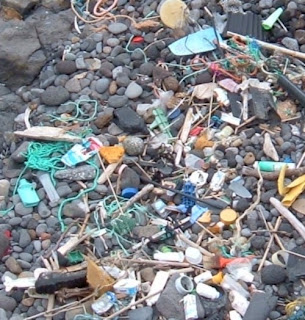Leo Sayer says "No Fracking Way"
Celebrities around the world are joining the general public in campaigning to stop fracking, which term is a shorter way of saying hydraulic fracturing. British rock star and singer-songwriter Leo Sayer. who relocated to Australia, has moved away from pop to protest with his song No Fracking Way. Leo assembled a group of singers and musicians to support him in protesting at the Australian government's policy on fracking.
Hydraulic fracturing diagram (Photo: Mikenorton)
This practice of mining for gas and oil disrupts neighbourhoods with increased traffic, pollutes the groundwater and environment with toxic chemicals, damages the landscape, is a threat to species of flora and fauna, and is even known to cause earthquakes. This is why so many people worldwide are saying a loud NO to it!
Sean Lennon, Yoko Ono and Artists Against Fracking
Don't Frack My Mother
Sean Lennon, and Yoko Ono head a cast of artists who recorded a humorous yet deadly serious protest song entitled Don't Frack My Mother. They are part of a team of Artists Against Fracking and are focusing their efforts on stopping fracking in the New York area, as a first step in a global campaign. Over 200 internationally famous singers, bands and stars of stage and screen have shown their support for this. It is a very long and diverse list of celebrities from all parts of the entertainment industries behind this and names include, Lady Gaga, Beck, Paul McCartney, Carrie Fisher, Beastie Boys, Gwyneth Paltrow, David Crosby, Ringo Starr, Roberto De Niro, Polyphonic Spree, and the Patti Smith Group.
King Arthur Pendragon
King Arthur at Stonehenge Summer Solstice (Photo Ann Wuyts)
Meanwhile in the UK, eco-warrior and Druid, King Arthur Uther Pendragon, who often features in the media due to his campaigns for Truth, Honour and Justice and who is titular head of the Loyal Arthurian Warband Druid Order, has spoken out against fracking.
King Arthur shared these words on his Facebook page today:
"Twenty Years on from Newbury, Let not, 'Call me Dave' Cameron forget the passion and the numbers mobilized and let him not think for one moment that we will stand by and let his government 'Frack' this 'once green and Pleasant land' against the wishes of her People. She is 'our' land and will protect those who stand by her side. In Nature we trust, in Government we do not."
By the way, there is an excellent book about King Arthur Pendragon, which he co-authored with C.J. Stone. The book is entitled The Trials of Arthur Revised Edition.
An here is Arthur in the trailer for a documentary about him.
Petitions to Stop Fracking
Please sign these petitions and let's do what we can to stop fracking!

















%2Bpublic%2Bdomain.jpg)
.jpg)




.jpg)